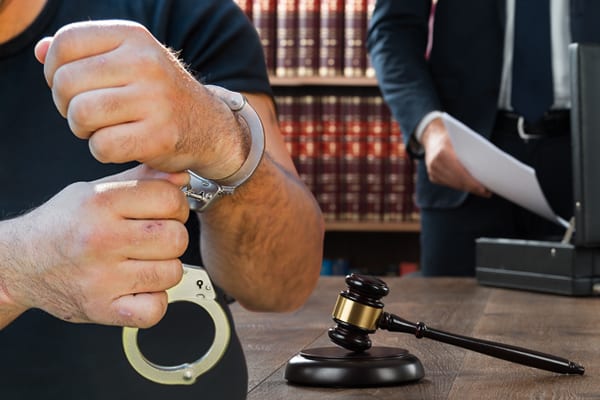
When many people think of crime in Brainerd, they think of the 1996 movie Fargo. The film included a disclaimer that it was based on a true story. Producer/Director Ethan Cohen later said that there was nothing factual about the story, except for some random bits and pieces. However, “You don’t have to have a true story to make a true story movie,” he once said rather cryptically. It may be entirely fictional, but if you can stomach the blood, it’s also a very good movie.
But, back to reality. Smaller jurisdictions like Crow Wing County are known for their extremely aggressive prosecutors. No one wants to be prosecuting DUIs in Brainerd as they approach retirement. Since the only way to move up the ladder is to get lots of convictions, your criminal case may be little more than a stepping stone.
Moreover, small counties usually have very conservative residents. That means the jury is likely to have quite a few “tough on crime” jurors. So, prosecutors often take more chances in places like Crow Wing County.
Even in rural Minnesota, you have a lot of criminal defense choices. How do you know how to pick the best criminal defense attorney in Brainerd?
Familiarity with the Process
Most crimes in Brainerd consist of three separate stages. It’s important to know the legal issues that are unique to each one of them. That is the best way to attack the state’s evidence, and that is the best way to ensure a positive result.
A criminal law case usually begins with a traffic stop or other kind of law enforcement contact. DUIs are a good example. Nearly all these arrests begin with a minor traffic violation. Even a non-moving violation, like a burned-out taillight, may suffice.
When the officer gets to the defendant’s car window, the officer is looking for reasonable suspicion of criminal activity. Recently, the Supreme Court has watered down this standard. However, the officer must still have “specific articulable facts” that point to criminal activity. In a DUI case, that means things like:
- Odor of alcohol,
- Bloodshot eyes,
- Erratic driving, and
- Slurred speech.
These facts do not necessarily mean that the defendant is intoxicated. In fact, they may not even mean the defendant had been drinking. Many people driver erratically not because they are drunk but because they are lost, sleepy, nervous, distracted, and the list goes on. However, the standard is very low. So, it’s very difficult to challenge a criminal case at this stage.
The next phase is different. To make an arrest, the officer must have probable cause. This evidentiary standard has no precise definition. But, it is somewhere between reasonable suspicion (very low) and beyond a reasonable doubt (very high).
Let’s stay with the DUI example. If the defendant refuses to provide a chemical sample, the officer must rely on the field sobriety tests to establish probable cause. The three officially-approved tests are:
- Walk and turn (walking a straight line),
- One leg stand, and
- Horizontal Gaze Nystagmus (following a point with your eyes).
The officer invariably testifies that the defendant “failed” every test. That failure may be based on a minor technicality, like starting with the wrong foot. The judge must review the evidence for legal sufficiency. If it comes up short, the judge may throw out the case.
As mentioned, at trial, the prosecutor must prove every element of the offense beyond a reasonable doubt. Much like probable cause, this term has no precise definition in Minnesota. In a DUI, the evidence must be so overwhelming that there is no other reasonable explanation other than the prosecutor’s version. The jury must be convinced that the defendant was intoxicated beyond the legal limit, and not simply “buzzed.”
The Best Criminal Defense Attorney in Brainerd Comes Out of the Closet
That subheading got your attention, didn’t it? Here, the closet we mean is the “plea closet.” Some attorneys zero in on a plea bargain arrangement and neglect trial preparation. While the overwhelming majority of cases (97 percent by one count) do settle out of court, that leaves a significant number which go to trial.
One famous example is the 1968 slaying of Presidential candidate Robert F. Kennedy in California. Sirhan Sirhan was arrested at the scene, and there was quite a bit of evidence against him. His attorneys spent a lot of time trying to plea bargain the case, but the judge rejected the deal. As a result, some say, the defense failed to poke holes in the prosecutor’s evidence. A jury rather quickly found Mr. Sirhan guilty.
More importantly, attorneys who stay in plea closets do a disservice to their clients. Prosecutors know that they will not challenge their evidence, so they do not get the best deals.
Call Today To Speak With A Brainerd Criminal Defense Attorney From Carlson & Jones
In addition to vast knowledge and the right attitude, the best criminal defense lawyer in Brainerd also has a passion for representing defendants in court. For a free consultation with a passionate criminal defense attorney in Brainerd, contact Carlson & Jones, P.A. Home and jail visits are available.

